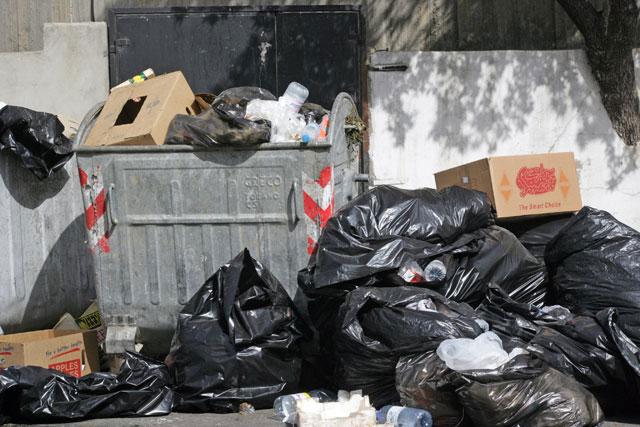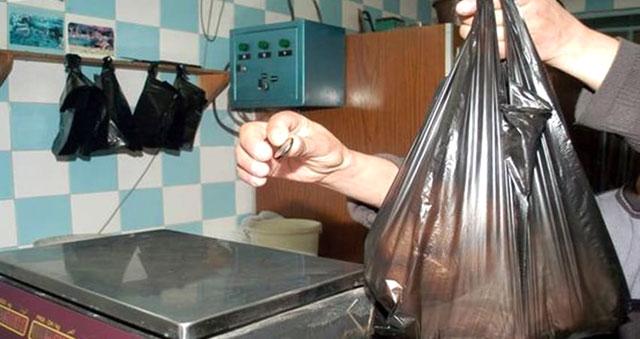You are here
‘253 facilities referred to prosecutor for allegedly violating Environment Protection Law’
By Hana Namrouqa - Dec 31,2017 - Last updated at Dec 31,2017

The Environment Ministry has been in communication with consumer associations, shopping malls and pharmacy chains over the past year to ask them to abandon the use of regular plastic bags and turn to biodegradable plastic bags and paper bags (File photo)
AMMAN — The Ministry of Environment has referred 15 factories to the general prosecutor from April till December for producing plastic bags that violate its law on the use, production and import of plastic bags, officials said on Sunday.
Minister of Environment Yaseen Khayyat said in a statement e-mailed to The Jordan Times that 15 factories in Amman and Zarqa that produce plastic bags have been referred to the general prosecutor for breaching the Environment Protection Law and a by-law on the use and production of biodegradable plastic bags.
Khayyat underscored that the ministry referred the breaching facilities in enforcement of the Environment Protection Law which went into effect in April.
“Since the Environment Protection Law went into effect, the ministry has referred 253 facilities in the industrial, vocational, agricultural and service sectors to the general prosecutor… this indicates the ministry’s serious enforcement of the law to protect the environment from pollution,” Khayyat said in the statement.
The new by-law on the use, production and import of plastic bags regulates the use of biodegradable materials in the production of plastic bags to reduce their lifespan to 18 months, according to ministry spokesperson Isa Shboul.
“The by-law was drafted to end the spread and use of plastic bags which pollute the environment as they take many years to biodegrade,” Shboul told The Jordan Times on Sunday.
More factories in Jordan are turning into the production of biodegradable plastic bags and paper bags to eventually replace plastic bags that take decades to break down in landfills, according to the ministry, which said that biodegradable plastic bags and paper bags are becoming available in the local market at affordable prices.
The ministry has been in communication with consumer associations, shopping malls and pharmacy chains over the past year to ask them to abandon the use of regular plastic bags and turn to biodegradable plastic bags and paper bags.
Seven factories in Jordan are now producing biodegradable plastic bags, while up to four factories produce paper shopping bags, according to the ministry’s figures, which show that 400 local factories produce plastic bags, while Jordanians use 3 billion bags annually, only 20 per cent of which find their way to landfills.
Meanwhile, Shboul said that the ministry is cracking down on unlicensed workshops that illegally smelt lead extracted from used car batteries.
“The ministry’s inspection teams raided several locations in Wadi Al Esh in Zarqa Governorate, where they arrested four people involved in the illegal practice and seized and confiscated three furnaces, electricity generators and eight tonnes of waste oil…,” Shboul noted.
Smelting lead poses huge health and environment hazards, especially that lead and waste oils are categorised as hazardous waste according to laws and international conventions, according to the ministry, which also said that the practice is highly dangerous because smelting lead produces toxic fumes, while any leaked drop can cause major contamination to underground water and the environment.
Early last month, the ministry announced that it has seized and confiscated 55 kilogrammes of smelted lead during a night raid in east Amman. The ministry’s inspectors, accompanied by the Royal Rangers, arrested a group of people for illegally extracting and smelting lead out of old car batteries in open spaces.
Related Articles
SAHAB — A draft by-law on the use, production and import of plastic bags is being amended at the Legislation and Opinion Bureau and will ent
AMMAN — Environment Minister Saleh Kharabsheh on Wednesday stressed that plastic bags must meet the standards of Jordanian regulations issue
AMMAN — Preserving the environment is a joint social responsibility, where individuals and institutions have to cooperate to achieve this go

















